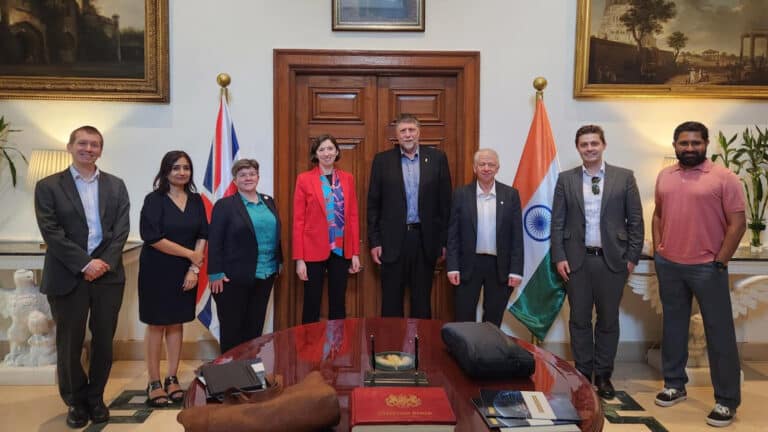The National Graphene Institute at the University of Manchester will be a key stakeholder in the new UK-India Technology Security Initiative (TSI).
The TSI has been set up to focus on boosting economic growth in both countries and to tackle issues such as telecoms security and semiconductor supply chain resilience.
It was announced during a visit to India by Foreign Secretary David Lammy.
The National Graphene Institute will partner with the University of Cambridge Graphene Centre and the Indian Institute for Science Bengaluru Centre for Nano Science & Engineering on advanced (two-dimensional) 2D and atomically thin materials and nanotechnology.
“The launch of the Technology Security Initiative further strengthens The University of Manchester’s commitment to India as a high priority country across all our key areas of activity,” explained Professor Stephen Flint, Associate Vice-President International at The University of Manchester.
“These include partnerships in research in science and engineering, medicine and health and humanities, involving graduate student training and shared taught course delivery.”
The University of Manchester is already collaborating with a number of partners in India, which has resulted in joint PhD programmes with the Indian Institute of Technology Kharagpur and the Indian Institute of Science, Bengaluru, which include a number of projects on 2D materials.
“The UK-India Technology Security Initiative will help shape the significant science and technology capabilities of both countries to deliver greater security, growth and wellbeing for our citizens. We are delighted to have The University of Manchester play a key part in this, particularly in our collaboration on advanced materials and critical minerals,” added Lindy Cameron, British High Commissioner to India.













